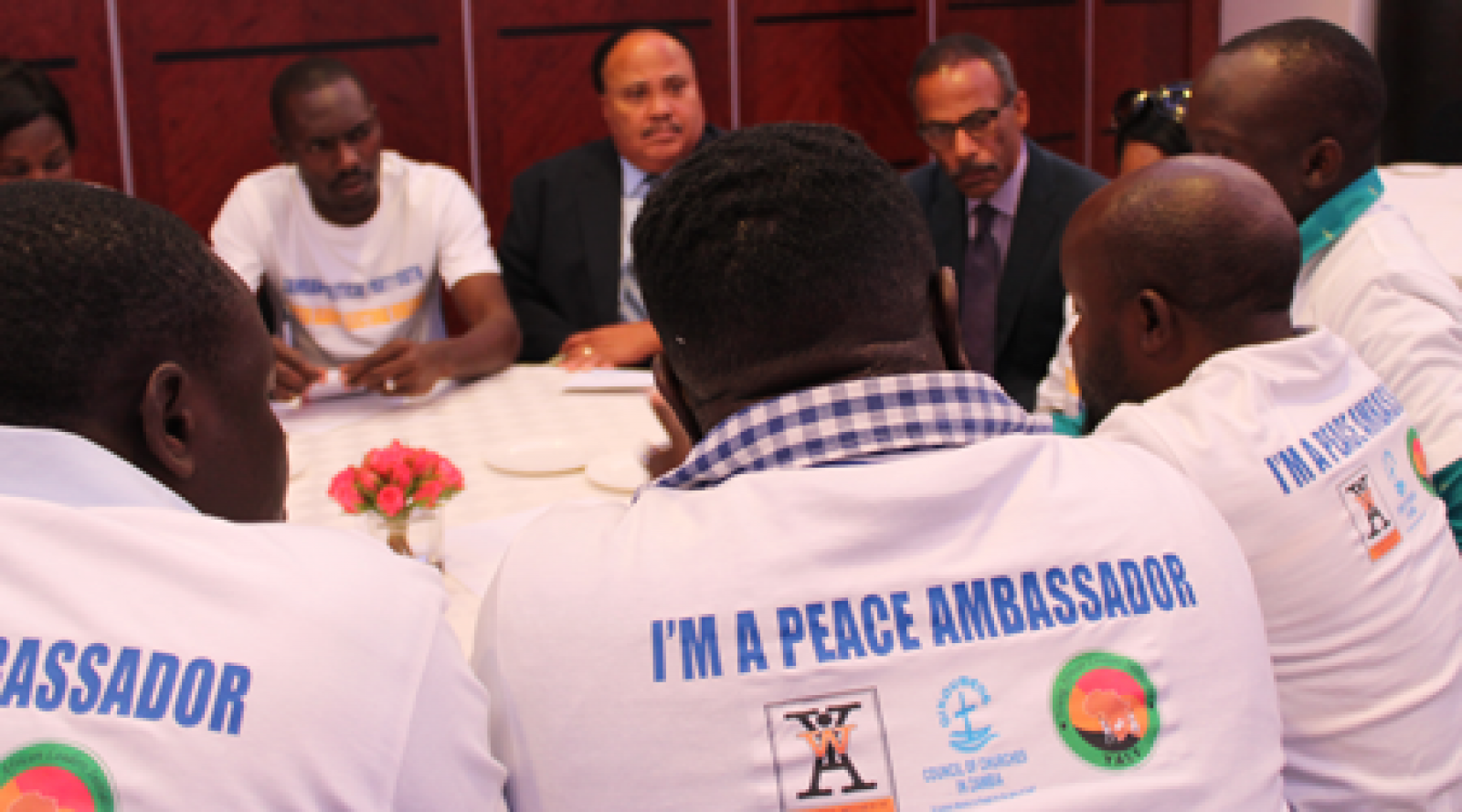Martin Luther King III Urges Zambian Party Youth to Avoid Electoral Violence

Zambian youth leaders meet with Martin Luther King III at an NDI-sponsored event to provide young leaders with anti-violence training and a platform on which to speak out against electoral violence. King called on the gathered youth leaders to “reject the use of violence as a political tool.”


